
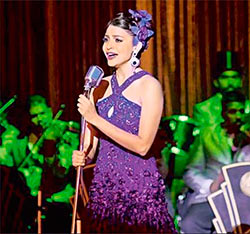
The heart wants how the heart wants.
In an essay about this song, one of the most remarkable songs our cinema has seen in a while, I wrote about how many songs speak of the heart as a percussive organ but this one strikes harder: "This is not a still or enchanted heart but an enraptured one, beating with ribcage-rattling vehemence, using a sound usually reserved for cartoon violence: dhadaam-dhadaam."
Lyricist Amitabh Bhattacharya builds the elaborately written song around the word Malal, a feeling of despondence, defeat and overwhelming melancholy. Neeti Mohan cries as she gamely, impressively conquers the trilling high-notes. And composer Amit Trivedi hits his jazz beats forcefully, making sure that while we listen to the song, all else is forgotten.
All except that goddamned, hard-dhadaaming heart.

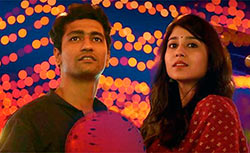
Standing on the shoulders of giants is never an easy task, which is why it's astounding how well Varun Grover has managed to build a song around one magnificent couplet from a Dushyant Kumar. ghazal. Indian Ocean haven't sounded this great in a while, but the words are the leading man here. The idea of a lover shivering like a bridge is almost less incredible than that of a bridge shivering like a lover, and it is this striking imagery that carries the spirit of Masaan, this idea of a girl passing by, unstoppably, like a locomotive and of the helpless man waiting to feel the thrill of the shiver.

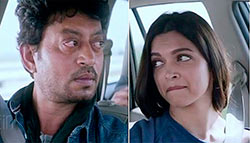
Anupam Roy's soundtrack for Shoojit Sircar's film was wonderfully unspectacular, underscoring the film and its moments while never clamouring for attention. This (unambigiously titled) song, composed, written and sung by Roy is the kind of easy-breezy song where you wouldn't change a thing, from the simply elegant words to the perfectly poised, yet stray, Bengali lines. The lines Roy sings — about thrilled hearts and being out on the road — apply to both Irrfan Khan, driving the car, and Amitabh Bachchan, heading home, while the Shreya Ghoshal bits — ostensibly mentioning green eyes, but, really, city-wary eyes refreshed by the green outside the car window — immediately situate Deepika Padukone's character and define her context.

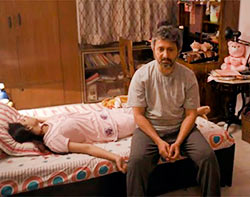
The screen fades to black at the end of Meghna Gulzar's fantastic film and Rekha Bhardwaj's voice washes over the audience, making sure we'll walk out of theatres haunted. Gulzarsaab's words about reaching out and finding life are perfectly crafted, and composer Vishal Bhardwaj — slowly, assuredly escalating the guitar-plucked rhythm — creates a song that wouldn't feel out of place in a nightmare. Or a dream.

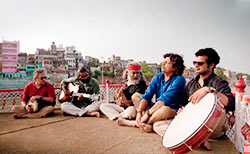
Magic. Indian Ocean take Varun Grover's fine, fine words — "Ageing is a mystery, and old people have told us this" — and spin them into gold, making for a glittering song that is both earthy and sophisticated, a poetic song unafraid of its lofty ambitions. The sound is classically Indian Ocean, certainly, and distinctive as the band always is, but the fragility of the verses lends them new wings.

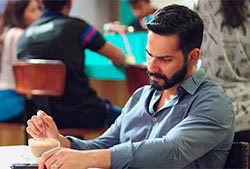
Rekha Bhardwaj and Arijit Singh take turns making the heart ache with this mournful song about regrets and time gone by. Written by Priya Saraiya and Dinesh Vijan, the Sachin-Jigar track is built on old-school instruments but is structurally innovative, particularly in the way both vocalists are made to contrast against each other instead of find a joint rhythm. Until the end, when the voices dance their own sad tango.

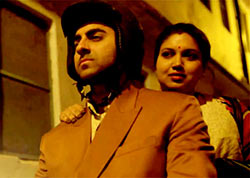
It's been a while since we heard something truly magical from composer Anu Malik, but there are few others who could capture the 90s aesthetic better for Sharat Katariya's evocatively crafted film. The heavy-lifting, however, is done by lyricist Varun Grover, who finds much common ground in this song about two opposites. "You are day, I am night, come let us meet like dusk."

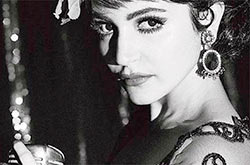
Every song from Amit Trivedi's exceptional Bombay Velvet soundtrack is worthy of reflection and applause, but some of them get deeper under the skin and linger longer than others. Neeti Mohan sings it like a weary jazz pro, and Amitabh Bhattacharya's words, about the language of love and how it reduces each of us to amateurs, are gorgeous.
- Detective Byomkesh Bakshy


Dibakar Banerjee's film was all about anachronism, which is why this unlikely alt-rock song about late night laments fit in quite beautifully atop his vision of Calcutta from the 40s. Originally composed in 2012 by Mumbai-based band Blek, the song was spiked with thumri vocals by Usri Banerjee to really give listeners a kick in the head.

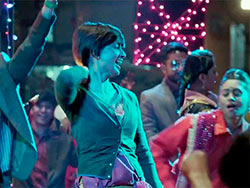
Some believe it's about a particularly attractive sweater, and this song — by new composers Tanishk and Vayu, and written by Vayu — has a groove that just won't take no for an answer, no matter what you might think the lyrics are. 'Swagger' might not be a common word, especially in a Punjabi-laced shaadi song context, but both the song (and heroine Kangna Ranaut) pull it off with flair.